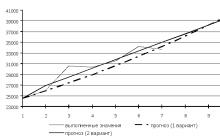Free enterprise does not always keep markets open to competition. If companies in a given market restrict competition and raise prices, consumers have fewer choices and producers lose the incentive to cut costs and improve production efficiency. The state must play an active role in maintaining and protecting competition, which is an important principle of a market economic system. Market advantages are associated with the functioning of competitive markets, i.e. markets where prices act as a mechanism for distributing resources and goods, and a mechanism leading to efficient distribution. In competition, it is the supply and demand decisions of many sellers and buyers that determine market prices. And these latter, in turn, determine the choice of goods by consumers and the proportions of resource distribution between different industries. When a monopoly replaces competition, sellers can influence the market and manipulate prices to their own benefit and to the detriment of society as a whole. The monopoly price, as a rule, is higher than that set in a perfectly competitive market, and the quantity of monopoly products produced is less than the competitive one. The latter means that the presence of a monopoly leads to inefficient distribution of resources and benefits compared to a competitive market. In addition, under monopoly conditions, consumer sovereignty will be replaced by the dictates of the manufacturer in the market. This predetermines government intervention in the operation of markets with strong monopoly power through the implementation of certain antimonopoly measures, the development of antimonopoly legislation and the creation of special government bodies that control the activities of firms with powerful monopoly power.
One of the first laws with an antitrust focus was the Sherman Act, which laid the foundation for antitrust legislation, adopted in the United States in 1890 and supplemented in 1914, 1936 and 1959. In a number of European countries, antitrust laws were adopted in the 30s of the 20th century. The Law “On Competition and Restriction of Monopolistic Activities in Product Markets” was adopted in Russia in 1991. Currently, state control over compliance with the antimonopoly legislation of the Russian Federation is carried out by the Ministry of Antimonopoly Policy and Entrepreneurship Support.
This ministry is a federal executive body pursuing state policy in the field of preventing, limiting and suppressing monopolistic activities, unfair competition, developing entrepreneurship and competition in product markets, and ensuring control over compliance with legislation on the protection of consumer rights.
Modern antimonopoly legislation has two principal directions: price control and control over company mergers.
Antitrust laws primarily prohibit price agreements. It is illegal for firms to collude to fix prices. The law prosecutes dumping sales practices, when a company deliberately sets lower prices in order to force competitors out of the industry.
Over the course of several years, the government of the Russian Federation has repeatedly fixed prices for the products of various imaginary monopolies. Such measures cannot be called a wise response to competition problems in the formation of market relations. First, the government did not have clear criteria and reliable methods for identifying monopoly enterprises, and as a result, hundreds and even thousands of enterprises fell into this category. Moreover, it underestimated the ability of international competition or the freedom to create new companies to limit the power of true monopolies. Secondly, price controls deal a blow to completely competitive industries and lead not to the establishment of competitive prices, but to a shortage of goods. And third, government price fixing may encourage businesses to develop an unspoken overall monopoly strategy. Thus, by setting high official prices for a particular product, the government may inadvertently contribute to the emergence of a monopoly where there used to be one. When forming market relations in Russia, it is necessary to pursue a policy of protecting domestic producers from the import of foreign goods. For example, in Japan there are special measures to support domestic producers. It is almost impossible for foreign firms to open production or business there.
The Ingush OFAS Russia, together with the Commissioner for the Protection of the Rights of Entrepreneurs in the Republic of Ingushetia, held the first Open Forum on the topic “ Freedom of competition and effective protection of entrepreneurship", in which employees of the Department of Small and Medium Enterprises of the Ministry of Economic Development I. Albakov and M. Uzhakhova took part. The purpose of this event was to coordinate the actions of government authorities and provide methodological assistance to representatives of the business community.
“Free competition between market participants stimulates the development of new technologies and the search for the most efficient methods of production. This leads to increased competitiveness of goods, a balance between their quality and price, and expanded choice for consumers,” B. Tochiev, head of the Ingush OFAS Russia, began in his welcoming speech.
Also speaking at the forum were the Deputy Head of the Ingush OFAS Russia R. Evloev, the Commissioner for the Protection of the Rights of Entrepreneurs in the Republic of Ingushetia M. Khamatkhanov, and the Executive Director of the Chamber of Commerce and Industry of the Republic of Ingushetia M. Gadiev.
After listening to the speakers, the Forum participants lively discussed all the topics raised, asking questions that interested them. There were some controversial moments, but the interest and activity of the participants allowed the organizers to decide at the end of the meeting to re-organize such a Forum.
Press service of the Ministry of Economic Development of Ingushetia
Latest news from Ingushetia on the topic:
Open forum “Freedom of competition and effective protection of entrepreneurship”
Magas
18:04 12.06.2017
Skforussia.Ru
Open forum “Freedom of competition and effective protection of entrepreneurship”- Magas
The Ingush OFAS Russia, together with the Commissioner for the Protection of Entrepreneurs’ Rights in the Republic of Ingushetia, held the first Open Forum on the topic “Freedom of competition and effective protection of entrepreneurship”,
16:21 06/12/2017 Ministry of Economic Development
OFAS for the Republic of Ingushetia
14.07.2017 A special contribution to the development of entrepreneurship was noted by the business ombudsman of the Republic at the Open Forum “Free competition and effective protection of entrepreneurship.”
OFAS for the Republic of Ingushetia
05.06.2017 “An entrepreneur needs to learn to protect his rights and participate more actively in the economic processes of the subject,” Batyr Tochiev noted in his speech at the Open Forum.
OFAS for the Republic of Ingushetia
02.06.2017
Valid Editorial from 03.07.2013

"STRATEGY FOR THE DEVELOPMENT OF COMPETITION AND ANTI-MONOPOLY REGULATION IN THE RUSSIAN FEDERATION FOR THE PERIOD 2013 - 2024." (approved by the Presidium of the FAS RF on July 3, 2013)
2.1.3. Introduction of a legal mechanism for preventing and suppressing anti-competitive actions of intellectual property rights holders:
Extend the scope of application of the Law on Protection of Competition to agreements on the use of exclusive rights that lead to restriction, prevention, or elimination of competition in the sale of goods;
Conduct an analysis of the situation in the field of competition protection in relation to cases of using the results of intellectual activity and means of individualization (RIDSI) in the context of certain types of RIDSI, sectors of the economy;
Systematize cases of using rights to RIDSI as a tool to restrict competition with a view to subsequently forming proposals for adjusting legislation;
2.1.12. Increasing the efficiency of control over “vertical” agreements:
In accordance with the EU experience, add Part 2 of Article 11 of the Law on Protection of Competition with a list of provisions prohibited regardless of the market shares of business entities entering into a “vertical” agreement.
III. Reducing administrative barriers that impede the development and free functioning of markets3.1.1. Implementation of the ISO-9001 quality management system in federal executive authorities based on the experience of the FAS Russia:
Based on the experience of FAS Russia, develop methodological materials that ensure the effective implementation of the ISO-9001 quality management system in federal executive authorities;
Prepare proposals to the Government of the Russian Federation for the adoption of national requirements for quality management of state and municipal services based on international standards of the ISO 9000 series.
3.1.2. Introduction of incentive mechanisms for federal executive authorities and executive authorities of the constituent entities of the Russian Federation:
To promote the formation of a system of indicators of the state and development of competition for the purpose of using it in assessing the performance of federal executive authorities and executive authorities of the constituent entities of the Russian Federation, as well as as target indicators of competition development programs;
Introduce into the lists of indicators of state budget programs for each federal authority indicators that reflect the contribution of the authority to the development of competition in the relevant area of regulation.
3.1.3. Implementation of measures aimed at eliminating excessive government regulation and reducing government participation in the economy:
Develop measures aimed at developing competition and reducing excessive interference of government bodies in the activities of small and medium-sized businesses within the framework of the activities of the Government Commission on Competition and Development of Small and Medium-Sized Enterprises;
Liquidate state and municipal unitary enterprises in all competitive sectors of the economy, with the exception of enterprises operating in the field of defense and security of the country;
Introduce procedures for coordination with the antimonopoly authority of government decisions on the creation of unitary enterprises, as well as non-profit organizations that are planned to be given the right to carry out entrepreneurial activities;
Develop and implement legislative measures to suppress the “diversion” of state property through unitary enterprises into private hands;
Promote the development of competition through the privatization and corporatization of state corporations, as well as the privatization of state property;
Ensure protection of small businesses from administrative pressure from government bodies and local self-government, establish for these purposes constant interaction with unions (associations) of small businesses;
Establish a direct prohibition for executive authorities to vest business entities that are market participants with the authority to formulate and maintain industry standards, as well as to carry out “permitting” functions regarding the admission of business entities (their goods) to the commodity market;
Establish a procedure for administrative appeal against actions (inaction) of state authorities and local self-government related to violation of the procedure for exercising powers in the field of construction and land relations;
Establish the obligation of the developer to obtain an opinion on draft acts of federal authorities, government authorities of constituent entities of the Russian Federation, draft federal laws regarding the impact of such acts on the state of competition in markets in the Russian Federation;
To ensure the transfer to the category of free public services, the provision of which is a necessary condition for doing business, to ensure the suppression of the unjustified imposition of additional services;
Improve the mechanisms of interaction between federal executive authorities and the business community, the expert community and civil society organizations within the framework of the Open Government system on the basis of the Competition Council, public advisory and expert councils under the FAS Russia;
Create a mechanism for interaction between antimonopoly authorities and the institution of the Commissioner for the Protection of the Rights of Entrepreneurs at the federal and regional levels, including within the framework of the activities of the Competition Council under the FAS Russia and public advisory councils under the territorial bodies of the FAS Russia.
3.1.4. Implementation of measures aimed at improving the mechanism for providing government preferences:
Ensure transparency of the mechanism for providing state or municipal preferences by publishing information about preferences on the websites of government agencies and in the federal information system "Electronic Budget" on the Internet;
Simplify the procedure for providing and increase the availability of state or municipal support for business entities by canceling preliminary approval and notifying the antimonopoly authority about the provision of preferences;
Develop quantitative and qualitative indicators of preferences and criteria for assessing the impact of preferences on the competitive environment;
Develop and implement a methodology for assessing the impact of government preferences on the state of the competitive environment, taking into account the tasks of socio-economic development of the Russian Federation and constituent entities of the Russian Federation in the field of development of innovation, investment activities, support for the implementation of infrastructure projects;
Introduce responsibility of authorities for monitoring the use of state or municipal preferences and mandatory reporting by an economic entity for the use of preferences;
Provide methodological support in the field of provision and control of the use of state and municipal preferences by developing “guidelines”, creating on the service’s website a permanent section on antimonopoly control of state and municipal preferences with sections “question-answer”, “best/worst practices” in the field of providing preferences.
IV. Ensuring non-discriminatory access of consumers to the services of natural monopolies, formation of effective tariff setting mechanisms4.1.1. Stimulating reduction of prices for services of natural monopolies, improving the quality of such services and their availability:
Abolish the federal law “On Natural Monopolies” and introduce into the Law on the Protection of Competition provisions providing for the specifics of state regulation of the activities of natural monopolies;
To legislate modern methods of tariff regulation of the activities of natural monopolies;
In the field of heat supply, carry out pricing based on the tariff calculated for the reference (cheapest) sources of thermal energy and heating networks;
Create legal and economic guarantees of accessibility of services of natural monopolies for consumers;
Create legal and economic guarantees for the quality of services of natural monopolies;
Introduce into industry legislation norms that reflect the specifics of regulation of individual markets;
Abolish tariff regulation in sectors of the economy that have entered a competitive state.
4.1.2. Increasing the efficiency of reforming natural monopolies:
Develop proposals to the Government of the Russian Federation on reforms in the railway transport and electric power industry, as well as on the introduction of pro-competitive incentive regulation in the electricity and postal communications industries;
To promote the approval of rules of non-discriminatory access in the areas of operation of natural monopolies:
Port services;
Postal service;
Telecommunications;
Transport terminals;
Eliminate regulated tariffs in sectors of the economy in which competition between market participants arises.
4.1.3. Increasing the transparency of procurement carried out by natural monopolies in order to reduce costs and increase the efficiency of using limited resources:
Amend Federal Law N 223-FZ "On the procurement of goods, works, services by certain types of legal entities" and other regulations of the Russian Federation in terms of:
Concretization of concepts and more detailed regulation of procedures for the procurement of goods, works, services by subjects of natural monopolies, state corporations and business entities controlled by the state (following the example of legislation on public procurement);
produced or sold by subjects of natural monopolies, as well as to infrastructure facilities used by subjects of natural monopolies directly to provide services in the field of activity of natural monopolies, and monitoring their use.
V. Creating conditions for effective competition when placing state and municipal orders and selling state property at auctionThe implementation of the norms of the legislation of the Russian Federation on the placement of state orders had a positive impact on the development of competition, ensured openness and publicity of procurement procedures and the involvement of a wide range of people to participate in them, opened up the opportunity for unhindered participation in tenders, including for small and medium-sized businesses, and, as a result, results in efficient spending of budget funds.
At the same time, there is a need to further develop and improve procedures for placing government orders, eliminating existing barriers in order to attract even more business entities to this area, optimizing the time and material costs of participating in tenders, and expanding the possibilities of using electronic forms of order placement.
5.1. Development and improvement of mechanisms for placing government orders:
Introduce an information and analytical system that allows for real-time collection and analysis of data on public procurement and operations for the sale of state property;
Amend the Decree of the Government of the Russian Federation of September 10, 2009 N 722 “On approval of the Rules for evaluating applications for participation in a competition for the right to conclude a state or municipal contract for the supply of goods, performance of work, provision of services for state or municipal needs” in order to reduce the importance of subjective criteria when evaluating applications;
Expand the list of products consumed for defense needs, the purchase of which is carried out through open auctions;
Introduce mechanisms to detect plagiarism when carrying out research work under government contracts;
To legislate at the level of federal laws the obligation to post on the Torgi ru website information about the sale of state property and resources of all types that are in state ownership;
Stimulate the involvement of small and medium-sized businesses in the implementation of government orders;
Enter an electronic open competition form.
The implementation of the considered areas of activity of the service within the framework of the identified priorities will significantly improve the quality of antimonopoly regulation in Russia, as well as improve the investment climate in the Russian Federation. Consistent solution of the tasks of the strategy for the development of antimonopoly regulation in the Russian Federation should ensure the achievement of the following results:
Creating conditions for the dynamic development of key sectors of the Russian Federation economy;
Reducing administrative pressure on the functioning of markets from government authorities;
Increasing the efficiency of functioning of natural monopolies.
The Zakonbase website presents the "STRATEGY FOR THE DEVELOPMENT OF COMPETITION AND ANTI-MONOPOLY REGULATION IN THE RUSSIAN FEDERATION FOR THE PERIOD 2013 - 2024." (approved by the Presidium of the FAS RF on July 3, 2013) in the most recent edition. It is easy to comply with all legal requirements if you read the relevant sections, chapters and articles of this document for 2014. To find the necessary legislative acts on a topic of interest, you should use convenient navigation or advanced search.
On the Zakonbase website you will find the "STRATEGY FOR THE DEVELOPMENT OF COMPETITION AND ANTI-MONOPOLY REGULATION IN THE RUSSIAN FEDERATION FOR THE PERIOD 2013 - 2024." (approved by the Presidium of the FAS RF on July 3, 2013) in a fresh and complete version, in which all changes and amendments have been made. This guarantees the relevance and reliability of the information.
At the same time, download "STRATEGY FOR THE DEVELOPMENT OF COMPETITION AND ANTI-MONOPOLY REGULATION IN THE RUSSIAN FEDERATION FOR THE PERIOD 2013 - 2024." (approved by the Presidium of the Federal Antimonopoly Service of the Russian Federation on July 3, 2013) is completely free, both in full and in separate chapters.
Competition is the basis for the progressive development of the country; it ensures the constant and dynamic introduction of innovative technologies, is the main driving factor in the evolutionary development of society, generates diversity and ensures the most efficient distribution of resources. That is why the protection and development of competition is one of the main priorities of state policy.
A feature of the Russian economy is its significant dependence on the activities of monopolies in various sectors of the production of goods and services. This specificity is due to the continuity of the structure of economic relations that developed in the Soviet Union. The development of the modern economic environment in Russia was initially made dependent on raw materials, processing, and logistics monopolies created during the period of Soviet industrialization.
That is why the state of competition in the Russian economy is the most accurate indicator of the success of market reforms, freedom of economic activity and equality of enterprises of all forms of ownership.
In accordance with the identified priorities of state policy, the Mission of the Federal Antimonopoly Service (FAS Russia) is defined:
Freedom of competition and effective protection of entrepreneurship for the sake of the future of Russia.
Free competition between market participants stimulates the development of new technologies and the search for the most efficient methods of production. This leads to increased competitiveness of goods, a balance between their quality and price, and expanded choice for the consumer. Based on this, the efforts of the FAS Russia are aimed at preventing and suppressing actions that limit competition on the part of business entities, natural monopolies and government bodies.
By 2013, a modern legal and organizational framework for the protection and development of competition had been formed in the Russian Federation:
Legal institutions for the protection and development of competition correspond to the best practices of the world's leading antimonopoly authorities and at the same time take into account the specifics of the formation of internal economic relations;
The interaction of antimonopoly authorities, courts, associations of entrepreneurs, professional communities of lawyers and economists has created a functioning organizational mechanism for protecting competition, which makes it possible to develop standards and practical requirements for antimonopoly policy in relation to the most important commodity markets of the Russian Federation.
A feature of the current stage of state policy in the field of protection of competition is the need for it to go beyond the protective function with a focus on measures of a systemic macroeconomic nature, which should lead to the formation of a pro-competitive legal and institutional environment in key sectors of the Russian economy.
For the effective implementation of the FAS Russia Mission, documents have been developed that define the main directions for the development of the service: Policy in the field of quality management of government functions and services, as well as Personnel Policy.
The effectiveness and efficiency of the antimonopoly supervision system primarily depends on the synthesis of personal and professional qualities of service employees. That is why the HR Policy occupies an equal place in priority with the task of forming a high-quality system of supervision over compliance with antimonopoly legislation in commodity markets.
In order to improve the institutions for the protection of competition and its development, the FAS of Russia has developed a strategy for the development of competition and antimonopoly regulation in the Russian Federation for the period 2013 - 2024. (hereinafter referred to as the Strategy). The strategy takes into account the recommendations of the OECD Competition Committee, as well as proposals from business associations.
Free enterprise and competition
And in this regard, small and medium-sized businesses play a special role. Such enterprises quickly respond to market demands and flexibly change their “product line.” And their owners, forming the middle class, at the same time act as guarantors that the products of other manufacturers will find their consumers. At the same time, one should not think that small businesses are represented by traders or artisans. Modern small firms are equipped with the latest technology and produce products of excellent quality, often being suppliers (contractors) to large companies of various parts and assemblies.
Here lies another secret of the market economy. Its effectiveness and ability to develop is due precisely to freedom of entrepreneurship, freedom and the possibility of creating enterprises (firms) that respond to changes in the demand of the population (or other buyers). When the market becomes crowded with people willing to produce and supply a certain product, competition appears. This is the key moment of the market. Each company strives to outperform its neighbor in the market in terms of product quality and price. That is, each company strives to produce a product better and cheaper than its competitor. Note that in a modern society saturated with goods, quality is paramount. A bad but cheap product is no longer competitive. But this is an ideal scheme, representing the so-called “perfect” market, when there are many independent producers operating on it.
In real life, things are not so rosy. Entrepreneurs are not philanthropists, and business is not a sport. Businessmen do not really like to spend money even on organizing their own production and its modernization. Indeed, why all this trouble when you can work in another direction, namely, limit competition, which causes so much trouble. Restriction of competition is implemented by various methods. For example, a number of industries require very large initial investments (and subsequent ones too). This is one cutoff - not everyone can start their own business. In a number of industries (for example, pharmaceuticals), patent protection is used - to start a business, you need to purchase an expensive patent. In a number of image-making industries (perfumes, fashionable clothing, electronics), “brands” and “trademarks” are of great importance, if not decisive. To break into this market and displace the “old-timers” who have their own followers, a lot of money is required to promote your own product and ensure its sales.
This text is an introductory fragment. From the book Rich Investor - Fast Investor author Kiyosaki Robert TohruFreedom to lie During my 4 years at the academy, our course of study included the study of legislation in the field of shipping, business and international law. And although we were not trained to be lawyers, but to be officers working on ships transporting cargo to different ports of the world,
From the book Financial Management is Simple [Basic course for managers and beginners] author Gerasimenko AlexeyCompetition In the first 6 months of 1998, the number of eBay users increased from 340,000 to 850,000. The number of simultaneous auctions during the same time increased from 200,000 to 500,000. eBay considered constant growth and market capture a key component of success. But despite eBay's leadership, on
From the book Fundamentals of Enterprise Cybernetics by Forrester Jay16. 7. Competition Business managers seem to focus primarily on the competitive aspects of production and the market. But many of the problems that enterprises face are common to the entire industrial sector. The firms are quite similar to each other, and
From the book Economic Theory. Textbook for universities author Popov Alexander IvanovichTopic 6 MARKET COMPETITION. PERFECT AND IMPERFECT COMPETITION. MECHANISM OF FUNCTIONING OF A MARKET ECONOMY 6.1. Socio-economic content of market competition. Economic cycle of competition. Unfair competitionUnder competition, with one
author Mises Ludwig von5. Competition An insoluble conflict of interests prevails in nature. Livelihoods are rare. Reproduction tends to exceed food supply. Only the fittest plants and animals survive. Antagonism between animals
From the book Human Action. Treatise on Economic Theory author Mises Ludwig von6. Freedom Philosophers and legal scholars have put a lot of effort into defining the concepts of personal (freedom) and political (liberty) freedom. It can hardly be said that they were successful. The concept of freedom makes sense only to the extent that it relates to
author Gwartney James DPart II Seven Sources of Economic Progress Private Property: People work harder and use resources more efficiently when property is private. Free exchanges: Policies that prevent exchanges hinder economic growth.
From the book ABC of Economics author Gwartney James DCOMPETITION BETWEEN AUTHORITIES is as important as competition between firms. Competition between authorities and with private enterprises forces authorities to better serve the interests of the people. Competition disciplines. If a private firm provides poor customer service, it
From the book Basics of Economics author Borisov Evgeniy Filippovich§ 1 Free competition What are the signs of free competition Competition is the rivalry between participants in a market economy for the best conditions for the production, purchase and sale of goods. It is generated by objective conditions: complete economic
From the book The Soviet System: Towards an Open Society author Soros GeorgeFreedom Effective competition does not produce a state of equilibrium, but it maximizes individual freedom by reducing the dependence of equilibrium on existing relationships. Freedom is usually viewed as a right or system of rights - freedom of speech,
From the book Map and Territory. Risk, human nature and forecasting problems by Alan Greenspan From the book Why Russia is not America author Parshev Andrey Petrovich From the book Business is War author Anderson Donald2.2. Unhealthy competition Avoiding competition is the best way to win the competition. Humans as a species are classified as mammals. Despite centuries of evolution, the natural principle inherent in us has been preserved and manifests itself every day. If the race of people
From the book How to Innovate by Prater Charles2. Freedom Description: This characteristic determines the degree of independent behavior exhibited by employees of the organization. In an organizational climate with a high degree of personal freedom, people have a certain independence in performing their tasks.
From the book Human Factor [Successful Projects and Teams] by Lister Timothy From the book Human Factor. Successful projects and teams by Lister Timothy28. Competition Competition within a team or work group is a difficult issue, and managers do not have a consensus on this matter. You've probably heard the phrase that companies exist to compete, which suggests that some competition in











Development of a career guidance event “fun chefs” Scenario on the topic of being a chef
Presentation for the lesson presentation for the lesson in fine arts (art) on the topic Fragments from the presentation
Types and methods of planning
Personal income tax - how not to frame the recipient of assistance
Requirements for hotel staff